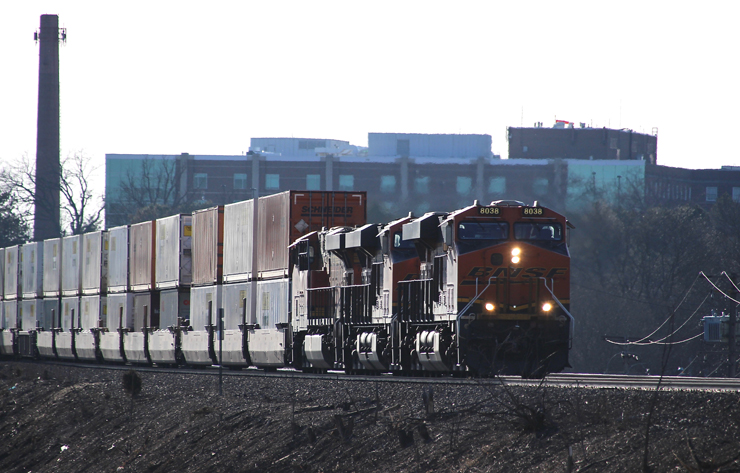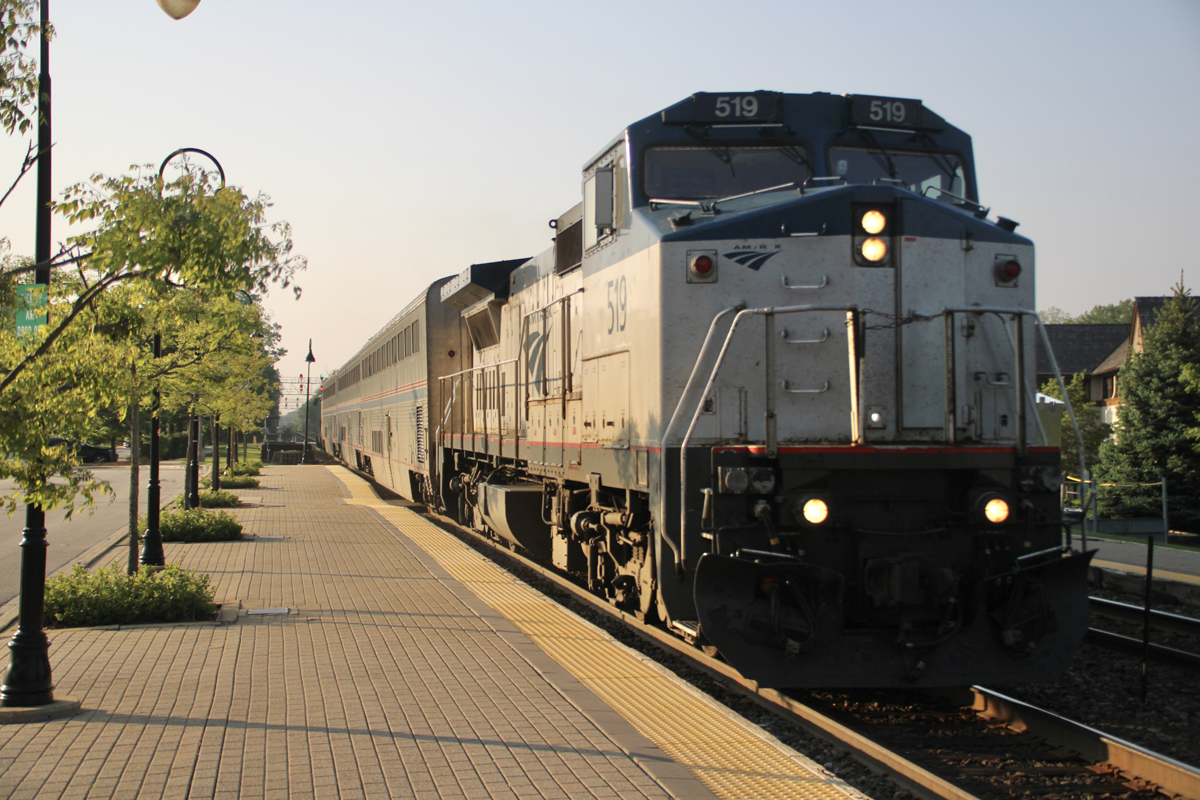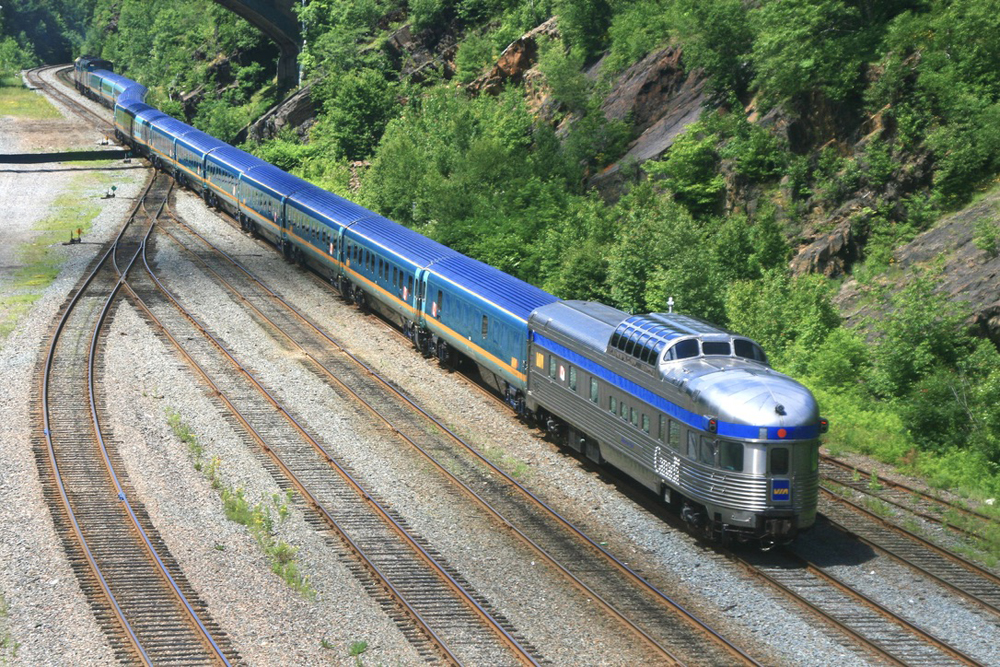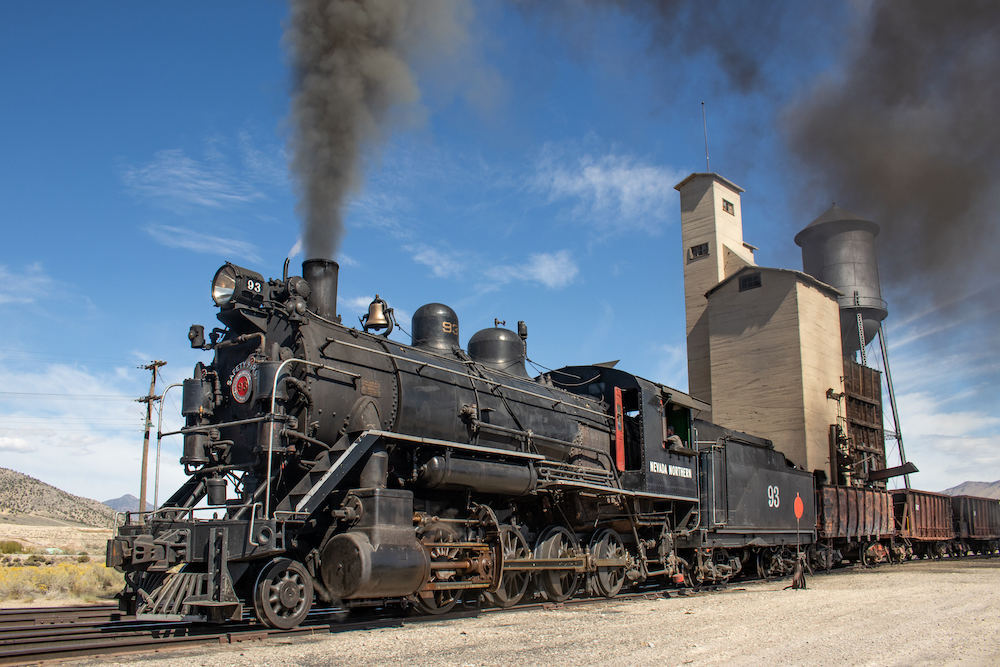Railroad traffic is expected to take a hit from the economic fallout surrounding the coronavirus pandemic.
International intermodal volumes have declined since China extended its Lunar New Year holiday to slow the spread of the illness. Factories have since been ramping up production, however, so the lull is expected to continue for another four to six weeks while containers make their way to ports and then across the ocean, says Todd Tranausky, a rail and intermodal analyst with FTR Transportation Intelligence.
“The carload side of the business has not yet seen any impacts, but our baseline economic forecast now indicates a short V-shaped recession in the middle of 2020 that carload is unlikely to escape unscathed,” Tranausky says. “The sharp reduction in crude prices we have seen over the last 10 days to two weeks will pressure crude-by-rail volumes and any remaining drilling sand volumes. Lower economic activity related to the coronavirus will limit electricity demand and make it even harder for coal to compete with now even lower-priced natural gas.”
Like other forecasters and some of the Class I railroads, FTR projects a surge in volumes related to pent-up demand once social distancing measures are eased around the globe.
“But the magnitude and timing of that event is fairly uncertain, as the timeline for resumption of normal activities changes day by day, if not hour by hour,” Tranausky says. “Right now, we would expect to see some of that bump occur in the late third or fourth quarters of 2020.”
Bloomberg analyst Lee Klaskow says Class I railroad earnings growth is likely to be reduced to low-single digit percentages, down from mid- to high-single digit growth this year.
Independent analyst Anthony B. Hatch says the pandemic’s economic effects will be unpredictable. Rail traffic was already expected to be relatively weak this year due to lukewarm manufacturing and ongoing trade uncertainty.
“Now there is no guidance,” he says. The most uncertainty, Hatch says, revolves around the demand side of the economy and what and how much consumers will buy.
Railroads are likely to respond by cutting costs as freight traffic slumps. Traditionally this has meant running fewer trains and furloughing train and engine crews in line with the reduction in volume.
At an investor conference on Tuesday, Kansas City Southern executives said they were unaware of any KCS customers who had shut down facilities or scaled back either their operations or production amid the pandemic.
In fact, KCS has seen increased demand for grain, chemicals used in disinfectants, and for paper, Chief Financial Officer Mike Upchurch told the Bank of America Global Industrials conference.
But the United Auto Workers on Tuesday urged the Big Three U.S. automakers to shut down their plants for two weeks as a way to protect workers from the spread of COVID-19. The automakers instead agreed to partial shutdowns of plants to allow for increased disinfecting.
Volkswagen and Fiat Chrysler have shut down some assembly plants in Europe, and Ford has shut down a plant in Chicago that ran out of parts.
Auto-related business represents around 5% of U.S. rail traffic. KCS was bracing for a downturn in automotive traffic because big-ticket purchases are the first thing consumers stop making in an economic downturn, Upchurch says.
Like other railroads, KCS is prioritizing the health and safety of its workforce amid the pandemic, CEO Pat Ottensmeyer told the conference. The railroad is now dispatching its system from multiple locations rather than just the centralized dispatching center in Kansas City and has stepped up cleaning of locomotive cabs, among other steps such as elimination of unnecessary travel.
Thus far there has been no disruption of railroad operations, the executives stressed.
Upchurch says KCS has a strong balance sheet, an untapped line of credit, and plenty of free cash to weather a pandemic-related downturn.
Ottensmeyer noted that KCS is modeling financial scenarios worse than what the railroad saw during the financial crisis that spawned the Great Recession in 2008 and 2009.















To answer Penelope Vinson’s question, I worked as a locomotive engineer for the Soo Line at Bensenville, IL. When the engines would be serviced for emptying the toilet, that’s when the person performing that work would wipe down the insides of the toilet room (always in the front of the locomotive) with a cleaning fluid. The Soo would always give us engineers four containers of Clorox Wipes every six months. I religiously used these wipes to clean off all the controls of the engine I’d be operating not to mention the cab door handles, refrigerator door handle, window latches, etc,.
Too often I’d witness a few of our engineers with somewhat unsanitary habits such as eating sunflower seeds, then taking the shell fragments from their mouths to throw on the floor and then touching the controls. Also, and this included all crew members, people would use the toilet and then not clean their hands with the alcohol wipes from the “crew packs” we’d be supplied with by mechanical services. And “God knows” who of us would cough or sneeze onto the controls of a locomotive. Sometimes you’d have to clean certain surfaces again during your shift depending on the lack of sanitation of, say, your conductor and/or brakeman. Guess I was just playing it safe all the time.
I suspect during this coronavirus outbreak, a few more engineers these days are following in my footsteps!
For Christ sake. Educate yourselves. Climate change/global warming isn’t a hoax. It’s been studied for decades and is very real. The only hoax is the conspiracy theory denial.
If we keep this up, Steve, Brian, and Jim will be laid off and will have to learn how to Hobo.
Amazon Customers, AMAZONSMILE.
A snapback from virus caused traffic declines is hard to predict, both in duration and timing. what is certain is greater competition from trucking, especially intermodal. Playing games with fuel surcharges, demurrage charges etc.is not going to endear carriers to shippers, nor will “you’ll get it at our convenience.” Many remaining rail shippers are rail dependent; those who have a choice wont continue to be abused indefinitely.
The real elephant in the room long-term, is the relationship between marine carriers and rail. sMaersk and others are beginning to offer door to door service to seaboard destinations. That service is incompatible with “we’ll get it there whenever”. Driverless trucks are a canard. Here in Erie, despite a generally mild winter, we had two large multi-semi pile-ups that shut down I-90 for hours. It;s possible driverless may work in rural areas during times of low cross wind and dry roads. Trying to force the safety envelope during bad weather will be disposed by insurers.
I have wondered if railways clean the cabs of their locomotives or just leave the task to the engine crews. A clean environment makes for better work morale.
@Roger Keay: My bad. Thanks for the correction. Not sure why I was thinking imperial.
TROY – I may be “misled” but I’m not a “shill for anyone. Not the oil industry, not anyone else. I speak for myself.
Global warming. The late Charles Krauthamer was a brilliant man whose take on public affairs was as good as anybody’s and far better than most. Of course anything Charles said was several years ago (he was out of sight a year before his death) and events have moved since then. Charles descibed himself as “an agnostic on global warming”, meaning nothing had been proven to his satisfaction one way or the other – that his mind was open. And his mind was gargantuan. Charles was never “misled” nor was he anyone’s “shill” on any subject. Were Charles still alive and able to speak he might have a different view on global warming now that more is known.
So much for that Charles, who had the good sense to share my first name. Now from this Charles, the one writing this post. I’ll leave global warming to the climatologists, both its existence and its cause. I’ll now speak to the impact.
I’m not in the least convinced that the proposed solution to global warming – the phased-out and banning of fossil fuels, will help in any way. I see battery storage and a global scale of electric power to be an ecological disaster in the making.
The existence of a condition (e.g. global warming) dcoesn’t mean its a problem. That a condition exists globally doesn’t mean its a global disaster in the making. When running for Vice President many years ago, the sleazy Senator John Edwards said global warming was worse than a nuclear war. Hey, Senator, I’ll take the 2 degrees Celcius and you can have the total destruction of half the world’s cities and the perpetual poisoning of the ecosphere.
As for the source of the stored power that’s supposed to substitute for fossil, to me nuclear is the only solution. Wind consumes land (productive farmland, mostly), enormous mineral resources for the windmills and the gear, and is often located remote from the use meaning transmission line loss. I’m not convinced that wind on a grand scale is feasible. Nor am I the least bit confident that the environmental impact of massive wind generation has been studied. Actually I think it’s been swept under the rug by the so-called environmentalists. They don’t want to know and don’t want us to know.
Solar I thinkj has potential for local use but massive solar farfms remote from the point of consumption would have the same issues as wind farms of a large scale.
I could see a rise in natural gas prices if oil production drops in the US. As for climate change it is cause by man and it is real, anybody who says otherwise is at best misled and at worst a shill for the oil industry.
J Rice: We haven’t used Imperial in Canada for decades. $0.669 per litre makes sense as an Alberta price. In Ontario, the price is roughly in the $0.80 to $0.90 per litre range.
WTI needs to be ~$60/bbl for the shalers to break even. Today its $22.67/bbl.
Gasoline hit $1.19/gal in Oklahoma today. It’s $.669 Canadian per Imperial in Alberta, the heart of tar sand oil.
Gas was $0.24/gal in 1968, with inflation that comes out to $1.67 in 2020 dollars.
April 2020 Diesel Futures are at .98. I wonder how those Class 1’s feel about those long term fuel agreements they signed last year? Usually they hedge against price increases.
Keep an eye on shippers looking for fuel surcharges to get lowered on their bills. Not likely.
Forget the pandemic. The actual impact is very small. Watch the situation with natural gas, though. As the oil industry in the U.S. goes bankrupt, we’ll see that the supply is very dependent on the the horizontal drillers. Shale oil cannot be profitable at today’s prices, so the gas supply will dry up. Better get the coal fired plants back up and running. Don’t worry. Human caused climate change always was a hoax.